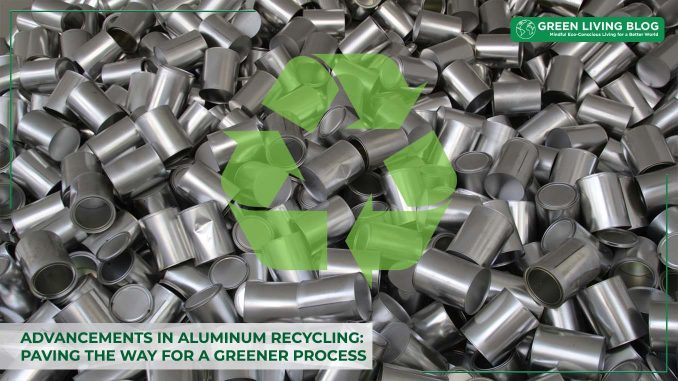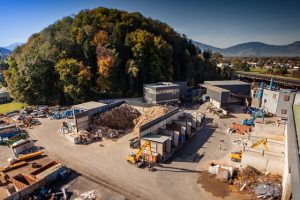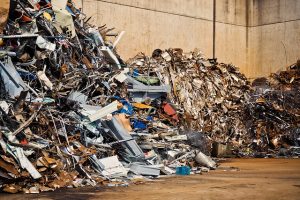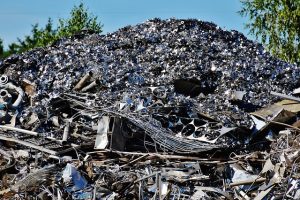
The metals industry is constantly evolving, and experts are racing to improve its sustainability.
Innovations in aluminum recycling have significantly enhanced this precious material’s efficiency, purity and reuse while minimizing its environmental impact.
From the latest sorting machines to a closed-loop market, here’s how recycling aluminum is helping the planet.
The High Cost of Aluminum Consumption

Aluminum is among the most sought-after metals across all economic segments. Its uses range from automotive manufacturing to construction materials to electronics components. With the rise of lithium-ion batteries for electric vehicles (EVs), aluminum demand has reached all-time highs.
Although its use in EV batteries contributes to the automotive industry’s transition toward sustainability, aluminum’s extraction process — separating it from bauxite ore — requires ample amounts of energy. Mining bauxite also has a significant environmental impact, from deforestation to erosion and habitat degradation. Carbon dioxide and perfluorocarbons emitted during aluminum’s production process increase greenhouse gas emissions — a primary contributor to climate change.
Because of these effects, the industry has turned to advanced technologies and systems to drive aluminum recycling, reduce its carbon footprint and conserve resources. According to one study, aluminum recycling methods may lead to a 90% reduction in aluminum emissions, waste, energy use and by-products.
3 Major Developments in Aluminum Recycling

While aluminum is among the most recycled metals, technological developments continue to improve operations and outcomes.
These three advancements in aluminum recycling are helping create a greener tomorrow:
1. Innovative Sorting Technologies
Cutting-edge sorting technologies are critical in enhancing the efficiency of aluminum reprocessing and aiding in the purification for reuse. For example, X-ray transmission technology and near-infrared sorting mechanisms accurately separate aluminum alloys from contaminants.
These technologies use sensors and robotic mechanisms to sort aluminum scrap by composition, color and density. The higher the purity level, the greater its recyclability and efficiency in meeting market demand.
The London Metal Exchange (LME) tracks aluminum’s price fluctuations and sets the value of metals based on consumers’ willingness to pay. In December 2024, after seeing gains the month before, the LME reported a 1.4% reduction in aluminum prices — a $41 decrease per metric ton. This means aluminum had a weaker price performance than other metals and could discourage recycling. Sorting technology allows for better quality metal recovery and the desired alloy for a higher market valuation without extracting new aluminum.
2. Alloy Separation
Aluminum alloys blend aluminum with other metals, altering various products’ strength, corrosion resistance and versatility. Separating these complex scraps ensures quality control for meeting industry standards, reduces operational costs and conserves resources by limiting new aluminum production. Therefore, advancements in alloy separation technology are critical to revolutionizing more precise aluminum recycling.
In a recent study, researchers recovered pure aluminum from 6061 aluminum alloy with semi-solid processing and supergravity separation. The material was heated to a partially solid and liquid form before an enhanced gravitational force could divide the various materials based on density. The results demonstrated a 99.3% purity rate and 81.98% recovery rate.
3. Closed-Loop Recycling Systems
Closed-loop systems promote a circular economy for aluminum. While the latest sorting and alloy separation technologies contribute to more sustainable recycling, artificial intelligence (AI) and blockchain further optimize the supply chain.
AI developments enable real-time insights and data analytics for more efficient operations. These insights are especially useful in making informed management decisions. Meanwhile, blockchain provides traceability and transparency by tracking trades and recycled metals from collection to processing. As a result, there is greater accountability for the end-of-life cycle.
For example, in 2021, Nissan announced it would use closed-loop recycled aluminum to build the 2021 Nissan Rogue — a first of its kind for the company. The company underscored the importance of decreased carbon emissions, waste reduction and more efficient use of resources from its new approach. Nissan also set a goal of replacing 30% of raw materials for cars made in 2022 with recycled metals.
Challenges and Solutions

Advancements in aluminum and metal recycling will help make the industry more sustainable, but challenges lie ahead. A greater need for this resource is a significant hurdle, while insufficient collection and limited recycling infrastructure make recovery difficult. In turn, the current state of recycling is insufficient for the industry to meet the demand for aluminum sustainably.
Expanding recycling infrastructure and homing in on material identification technologies is the best approach toward a solution. Of course, public education will raise awareness of the importance of aluminum recycling, especially amid EV expansion and calls for resource preservation. Revamping collections and upgrading recycling facilities are equally important.
Recycled Aluminum Decreases Metal Consumption
There will always be a need for aluminum, even when market values dip temporarily. The industry can improve its sustainability and conserve metal resources for future generations by leaning into advanced recycling technologies.
![]()
Author Profile
- Online Media & PR Strategist
- Blogger and Educator by Passion | Senior Online Media & PR Strategist at ClickDo Ltd. | Fascinated to Write Lifestyle Blogs in News & Education I have completed a journalism summer course at the London School of Journalism and manage various blogs.
Latest entries
 Best practicesApril 14, 20258 Best Ways to Reduce Your Carbon Footprint
Best practicesApril 14, 20258 Best Ways to Reduce Your Carbon Footprint Green Expert GuidesMarch 28, 2025Lisbon Living: Where Sustainable Charm Meets Urban Energy
Green Expert GuidesMarch 28, 2025Lisbon Living: Where Sustainable Charm Meets Urban Energy EnvironmentJanuary 21, 2025Buying Eco-Friendly Homes: 6 Eco Questions to Ask Your Real Estate Agent
EnvironmentJanuary 21, 2025Buying Eco-Friendly Homes: 6 Eco Questions to Ask Your Real Estate Agent BusinessJanuary 16, 202510 Benefits of used Office Furniture when Refurbishing an Office
BusinessJanuary 16, 202510 Benefits of used Office Furniture when Refurbishing an Office






Leave a Reply
You must be logged in to post a comment.